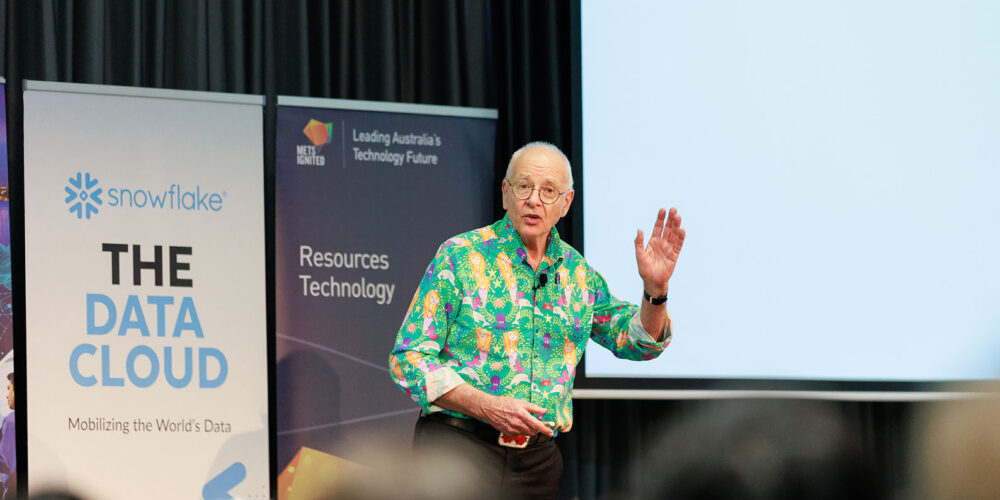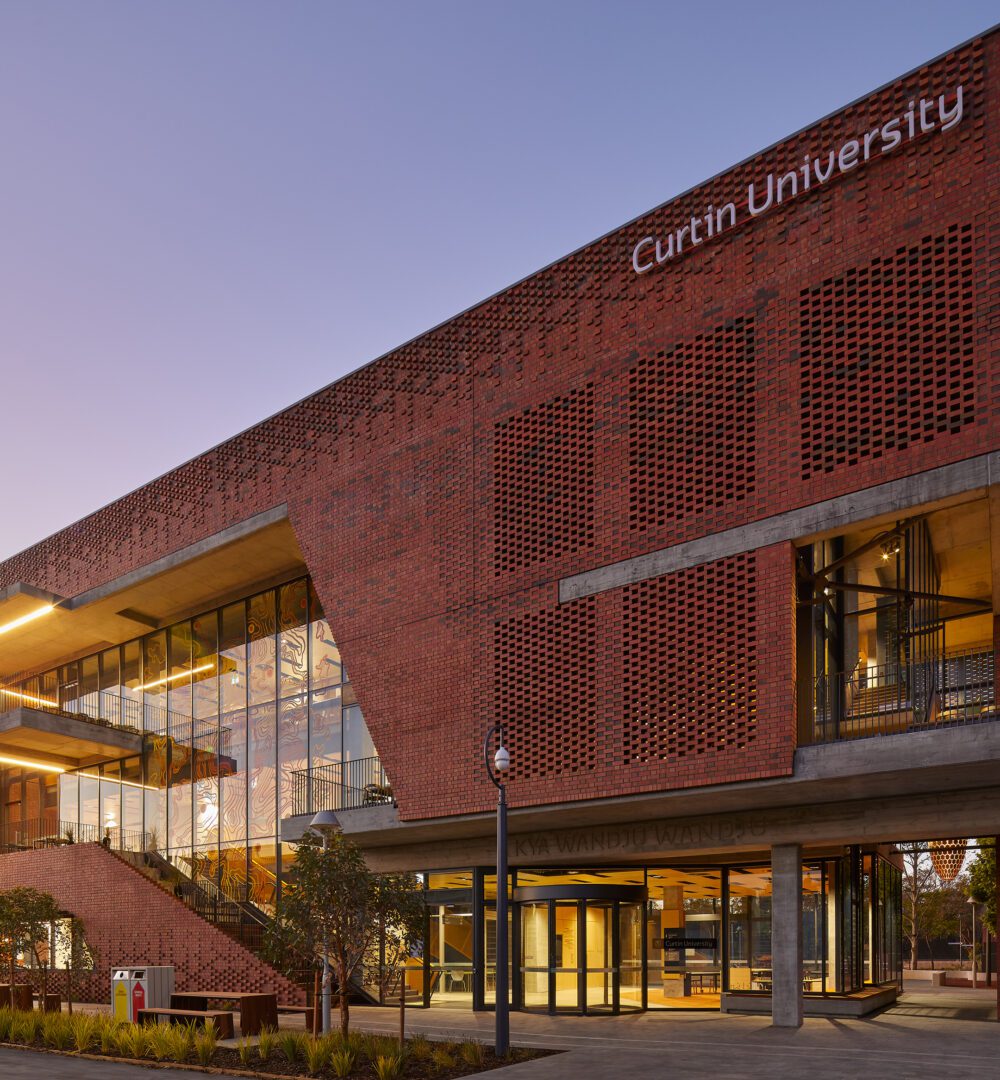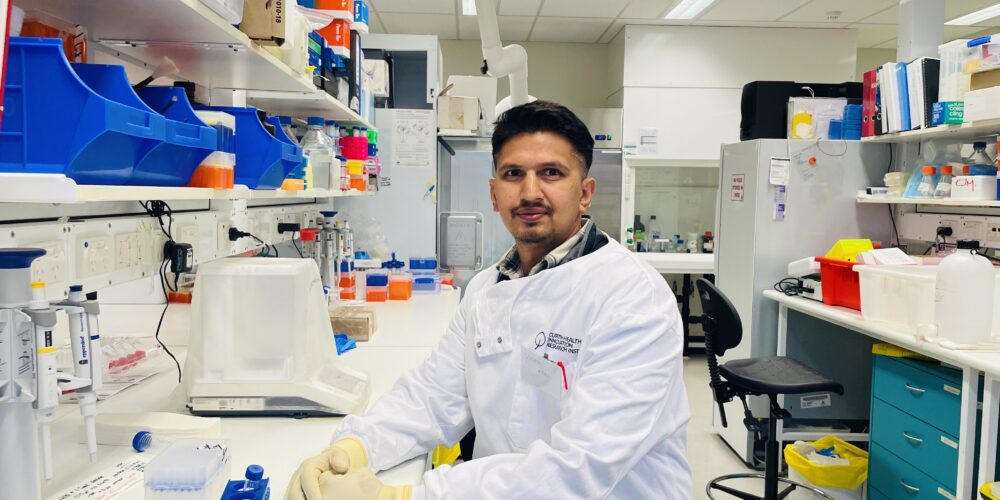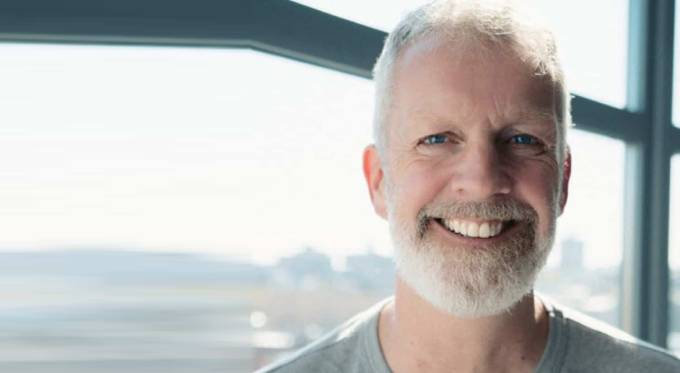Inaugural data science conference goes ‘back to the future’

Western Australia will need an extra 3,000 data scientists to ensure we lead the digital revolution, the State’s inaugural data science conference has been told this week.
Hosted by the Curtin-based WA Data Science Innovation Hub, the 2022 Data Science for Business Conference and Exhibition brought together more than 500 business leaders and data science specialists to discuss the impact that artificial intelligence and advanced analytics will have on the future growth of business in our state.
The conference heard from Innovation and ICT Minister, the Honourable Stephen Dawson MLC, leading Australian scientist and science communicator Dr Karl Kruszelnicki, Chief Scientist of Western Australia Professor Peter Klinken, former WA Australian of the Year Professor Lyn Beazley and Curtin Institute for Data Science Director Professor Melanie Johnston-Hollitt, among many others.
Western Australian Innovation and ICT Minister Stephen Dawson said the WA Data Science Business Conference and Exhibition was an insightful and rewarding two-day event that focused on exploring how data science could be used for business innovation and growth.
“Supporting business and innovation is at the heart of the McGowan Government’s ability to diversify WA’s economy and through the second round of the New Industries Fund, we’ve committed $1.2 million over the next four years to the hub, building on an earlier investment of $1 million,” Minister Dawson said.
“The event brought together the data science community in Western Australia to discuss ways to grow the industry in our State, helping diversify our economy and create new jobs.
“The WA Data Science Innovation Hub is a successful partnership between the State Government and Curtin University and is focused on helping Western Australia build a data driven ecosystem and culture that fosters collaboration.
“This will play a role in ensuring the State remains at the forefront of the digital revolution by increasing the uptake, education, training and awareness of data science in WA.”
WA Data Science Innovation Hub Director Mr Alex Jenkins said the inaugural conference was designed to facilitate the conversations and connections required to advance the uptake of data science capability, projects and technologies in WA.
“WA is uniquely placed to take the lead in the digital revolution due to our natural advantage in mining, agriculture and health but we really need to act now to secure the extra 3,000 data scientists we will need by 2030,” Mr Jenkins said.
“There is not a single sector of the economy that won’t be impacted by data science so we are committed to giving WA businesses the support they need to ensure they can make the most of the opportunities that artificial intelligence presents.
“A critical component of our inaugural conference was inspiring the next generation of data scientists to consider it as a career, as well as encouraging professionals to incorporate data science into their existing skill set.”
Professor Klinken said WA was well placed to take the lead given its natural strengths across mining, technology, health, renewable energy and our entrepreneurial community.
“This is probably the fastest period of change in human history and if you are static, you’re not going forward. We have to make sure that we participate in this period of rapid change and make the most of our comparative advantages and turn them into competitive advantages,” Professor Klinken said.
“To really do the very best in data, data science, data analytics, you really need to have bright people. You need to have the very best people. How do you attract them to Western Australia? We need to build an ecosystem and an infrastructure that enables people to feel that their careers are going to take off. I believe that our university sector, our government sector, our industry sector have a responsibility to work together to make sure that they provide the very best environment that makes it attractive to data scientists, data analysts, artificial intelligence experts to want to work here.”
A panel discussion on gender diversity in data science was also hosted by WiTWA Co-Chair and Valrose Chief Executive Officer Ms Tina Ambrose, Beyond Bank Australia Senior Manager Data Governance Ms Krista Bell, VentureX HQ Co-Founder Ms Pia Turcinov and Lean & Agile Pty Ltd Digital and Data Consultant Ms Niamh Toohey.
While 87 per cent of Australian jobs currently require digital literacy skills, innovations by digital technologies are predicted to add up to $315 billion to the national economy in the next seven years.
A study by PwC estimates that global gross domestic product may increase by up to 14 per cent (the equivalent of US$15.7 trillion) by 2030 as the result of the accelerating development and take-up of artificial intelligence.
For more information about the WA Data Science Innovation Hub, visit here.
About the WA Data Science Innovation Hub
The WA Data Science Innovation Hub (WADSIH) is a Western Australian Government initiative, and supported by Curtin University, which aims to ensure the State remains at the forefront of the digital revolution by increasing the uptake, education, training and awareness of data science in Western Australia.
It provides a range of services to support businesses, government and academia with building their data science capability and advancing data science projects, including one-on-one advisory services, upskilling programs and design thinking workshops.
WADSIH acts as the bridge between these sectors, connecting WA capability and resources to further advance the application of data science in Western Australia. For more information, visit here.



